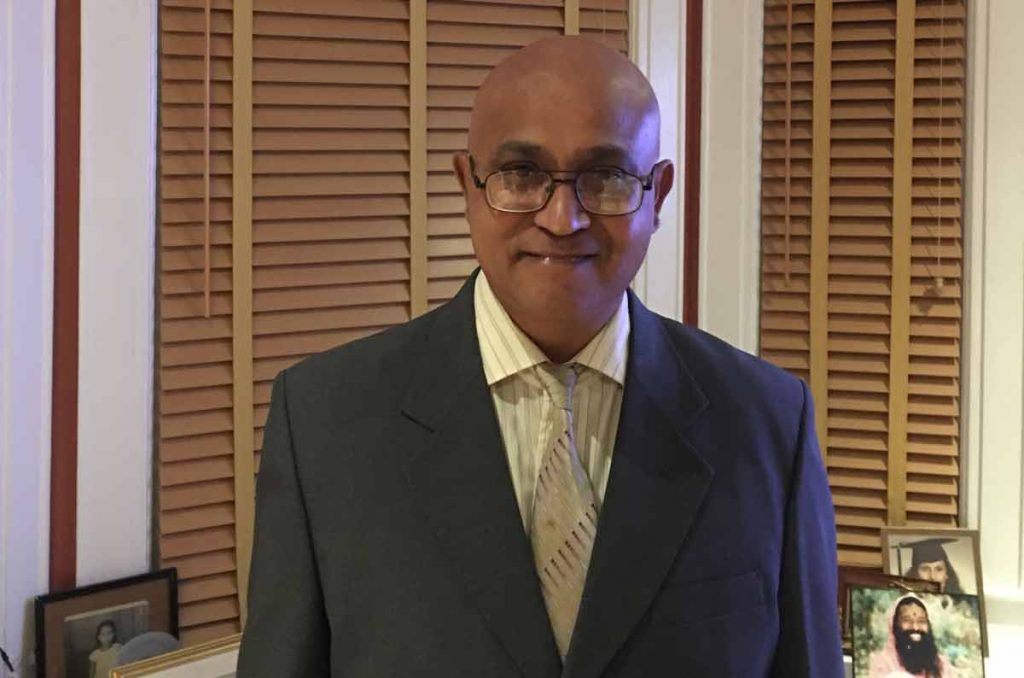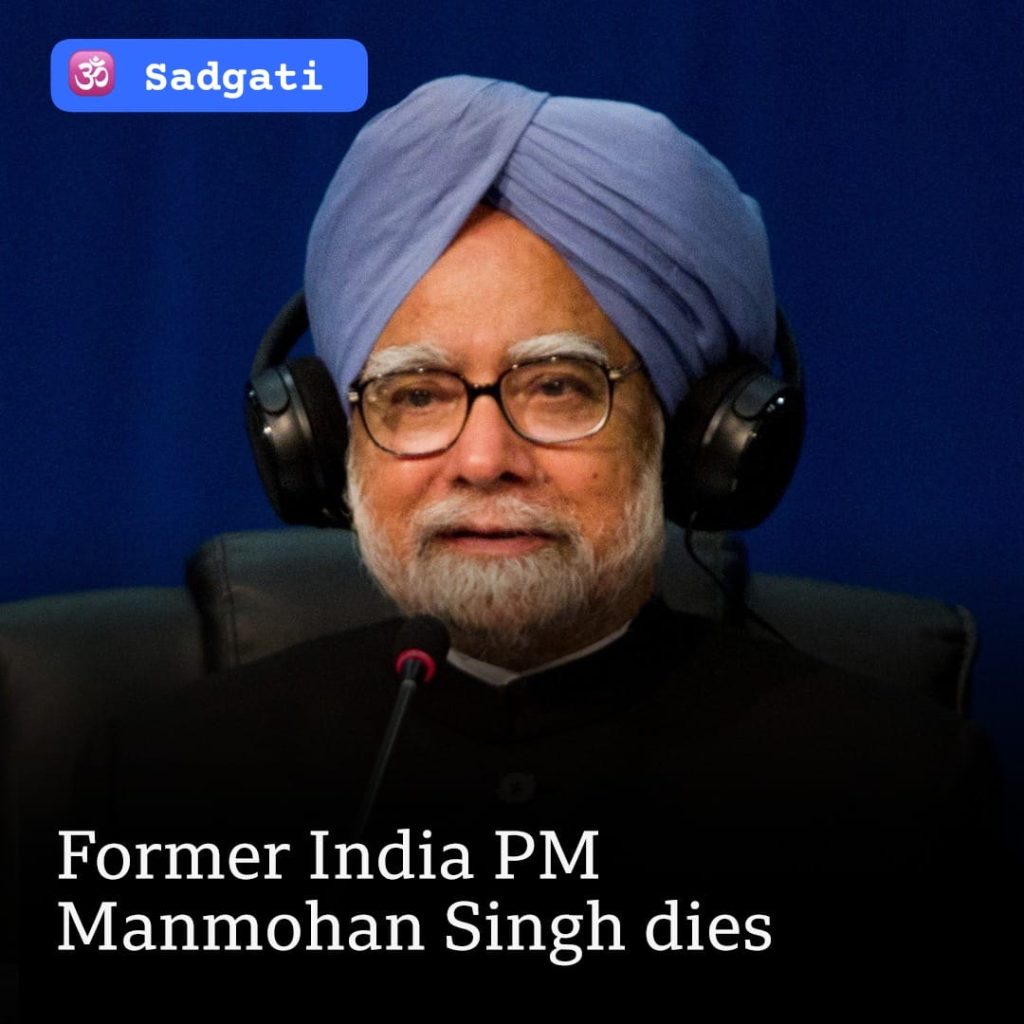I write to pay homage to former India PM Dr Manmohan Singh passed away. Those Guyanese (like Ashook Ramsaran, myself and others from NY) who met Singh remember him fondly; the late Yesu Persaud of Guyana credited Singh for India’s economic transformation when he became Finance Minister (1991-96). Guyana benefited tremendously during Singh’s tenure as PM (2004-14) with development assistance, loans, and scholarships. He interacted with President Jagdeo. And although he never visited Guyana, Dr Singh knew a lot about our country and indentureship. As PM, he had Guyana and other Indian diasporic countries at heart doling out developmental aid. (He did visit Trinidad for the Commonwealth Summit in 2009 where we met briefly and spoke about diasporic issues. President Bharrat Jagdeo and Singh held talks there).
As PM, Singh engaged President Jagdeo multiple times, boosting ties, and Singh found time to meet with a few of us in America and in India on strengthening soft power (cultural relations). Also, Dr Singh, long before his entry into politics, worked with the late Berbician economist Dr Bishnodat (Vishnu) Persaud on economic policies (advisory papers) for developing countries. Dr Clive Thomas was also among those who worked with Bishnodat. Persaud received grants and employed Singh; he respected Singh’s scholarship but did not speak of Singh in glowing terms. He noted that Singh was late in abandoning socialist ideas and embracing market reforms in India that would transform the world’s economy.
I knew of Singh since the 1970s reading news articles about him when he was Eco Advisor to and later Chair of Planning for the Indian government. Also, his name came up in readings while I was doing doctoral studies in Development Economics during the 1980s; he was considered a respected authority on Indian economy with a PhD from Oxford. He was an excellent writer and a profound thinker with hardly comparisons. He had embraced socialist economics which failed to eradicate poverty; he made a radical switch to market economics late 1980s. In 1991, when he became Finance Minister, he convinced PM Rao to experiment with economic liberalism. State industries were denationalized. The economy took off and has experienced record positive growth ever since. All Indian governments continued with economic liberalism until now with India having the highest growth among emerging economies over the last fifteen years.

I first met Singh in 1999 when he was running for the South Delhi seat to parliament. I was recruited by BJP linked organizations to join the campaign against him. I was not against Singh, but I was a founding member of the Overseas Friends of BJP in NY and supported the campaign to reelect PM Vajpayee and LK Advani. Mike Persaud was with me in Delhi that August 1999. He didn’t join the campaign, but he and I queried voters in several of the seven constituencies of Delhi how they would vote. We stayed in Karol Bagh, another constituency. We both concluded that BJP would sweep all the seats and I penned an article for the media with Mike’s guidance.
I was sent daily to South Delhi to campaign street to street and building to building as well as in the parks. I met Singh at a couple campaign stops and wished him well. He was a gentleman. He lacked charisma and charm but had a soft, gentle voice. My candidate was Dr Vijay Kumar Malhotra, then Prof of Hindi at Delhi University. I was sent to South Delhi because it was an upper middle class constituency with English speakers. I campaigned among Punjabi or Sikhs, Singh’s ethnic and religious kinship, many of who voted for my guy. There was a huge concentration of Sikhs in the seat. Singh was defeated by a huge margin by Dr Malhotra. I received a lot of platitudes by Dr Malhotra and the campaign team for the victory. The Molhotra family remembered me well and invited me for dinner at their home during a visit to Delhi in 2000. We spoke several times in subsequent years.
I met Singh again at PBD in 2003 and in 2004 when he was Opposition Leader in the Rajya Sabha and in 2005 in Mumbai when he was PM and several times thereafter in NY and at PBDs. He remembered Dr although they lost touch. Ramsaran interacted with Singh half a dozen times on diaspora matters. We lobbied Singh and his UPA government for increased scholarships for Indo Caribbeans. He graciously acquiesced. He also provided funding for an indentured monument that Ramsaran and I had discussed and conceived for Kolkata. It was constructed in 2011 with the effort and dedication of Ramsaran in memory of all the indentureds.
He was not made for politics, a profession that Indian people tend to link to corruption. Singh was an incorruptible honest politician, who did not steal a paise. But he closed his eyes to countless scandals. Corruption was worst under his tenure. When asked why he didn’t crack down on corruption, he responded that the compunction of coalition politics made it impossible to act. In other words, if he took action against the corrupt, he would lose his job. When pressed by reporters on corruption involving the Delhi Commonwealth Games in 2010 at which were several Guyanese, his response was he didn’t steal any money or took bribes and that the reporters should pose their questions to the ministers involved in the scandal. The voters had enough of the Singh led government. Singh and the UPA were swept out of office in 2014 with the Congress in its worst showing in history.
In spite of that blot in his record, Manmohan Singh was widely respected by friends and foes and by those of us who read his works. Though political opponents, PM Modi spoken glowingly of him. He was a man of honor whose generosity benefited Guyana and the diaspora.
